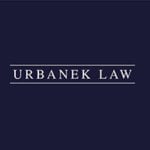-
Overview
Although there may be very rare exceptions, the general principle is that there are no restrictions on the acquisition and ownership of real estate in France.
The transfer of ownership of commercial real estate properties, the registration of securities and easements on these properties, and their leasing are all strictly regulated in France. These regulations ensure the security of transactions and protect the business activities conducted on the properties.
The transfer and ownership of commercial property have tax implications that must be considered.
Sustainability regulations are becoming an increasingly important part of real estate owners’ obligations, particularly concerning energy consumptions.
2026 will be an important year for real estate given the municipal elections to be held in March 2026. These elections and their results could impact current and future real estate projects.
-
What is the main legislation relating to real estate ownership?
The primary legislation governing transfer of ownership of commercial real estate properties is found in the French civil Code and the regulations of the land registry. Where the civil Code mainly rules the contractual relationships, the land registry regulations ensure enforceability against third parties.
Owners have a lot of regulations to deal with in particular to ensure the safety and security of the occupants.
-
Have any significant new laws which materially impact real estate investors and lenders come into force in the past year or are there any major anticipated new laws which are expected to materially impact them in the near future?
Future reform of special contracts law: following the reform of the contract law by the ordinance no. 2016-131 of 10 February 2016, a reform of the special contracts law is underway to harmonise and modernise it with the existing laws. In April 2023, the preliminary draft reform of special contract law has been submitted by the working group (chaired by Professor Philippe Stoffel-Munck) to the Minister of Justice which will use this draft to draw up a project (not yet published). The future reform will cover subjects such as sales and exchanges, leases, service contracts, loans, deposits, mandates, and more. Analysis of the said project also allows us to expect major changes reflecting key judicial contribution, but also implementation of new principles derived from the practice of said special contracts (e.g. removal of obligation to deliver from the civil Code definition of sale replaced by the transfer of ownership ; absolute nullity enshrined where the price of a sale remains undetermined and objectively indeterminable, reclassification of an unilateral promise to sell with a forfeiture clause when the sum agreed for the immobilization indemnity is manifestly excessive in terms of the beneficiary’s freedom not to purchase ; adjustment of statute of limitation for hidden defects ; modification of landlord’s obligation to deliver by incorporating the obligation to deliver suitable premises for the agreed contractual use (and not only to deliver premises in good conditions).
Simplification of urban planning law: On 15 October 2025, the French National Assembly adopted a law to simplify urban planning and housing law. The law has several objectives and introduces new provisions into the Urban Planning Code. The law reinforces exemptions from Local Urbanism Plan regulations when granting planning authorisation. It also creates multiple mechanisms in favour of buildings’ construction as multisite planning permission (art. L. 442-1-3 of the French Urban Planning Code) and urban transformation operation (art. L. 315-1 of the French Urban Planning Code). Another key aspect of this law is the overhaul of urban planning litigation with several provisions which aims to preserve projects from third-party actions before the administrative judge.
The French Constitutional Council has been seized by members of the French National Assembly to analyse the compliance of some of these provisions (especially those relating to urban planning litigation) with the Constitution. Following its decision, some provisions may be censored. The French Constitutional Council has until 21 November 2025 to rule on the constitutionality of the law.
Perpetuation of rent control: On 12 June 2025, the Senate examined a draft law relating to the perpetuation of the rent control mechanism established by Law No. 2018-1021 of 23 November 2018 on housing, development and digital technology at first reading. The Economic Affairs Committee of the National Assembly has been reviewing this draft law since 24 June 2025 (no timetable has been set-out yet).
The Paris Council’s deliberation on 8 October 2025: The Paris Council adopted the resolution ‘Paris, zero co-living’. Article 1 of this resolution reads as follows: “The City of Paris will inform private developers and operators of its rejection of co-living projects, which it considers to be incompatible with its housing and development policy.”. This statement is strictly political and has no legal effects. Only the Government and the Parliament have the authority to define, regulate or prohibit co-living projects and practices.
Preferred methods of amicable dispute resolution: Several decrees have been issued to guide parties towards resolving their disputes amicably and to reduce the courts’ workload (see Decrees Nos. 2025-660 and 2025-619, respectively dated 18 and 8 July 2025).
Facilitating the conversion of offices into housing: Law No. 2025-541 of 16 June 2025 aims to facilitate the conversion of offices and other buildings into housing by introducing new provisions to the Urban Planning Code to allow the conversion of offices and all types of tertiary buildings, including former administrative premises, hotels, commercial premises, and disused agricultural buildings, into housing (possibility of exemptions from local urban planning regulations and adaptation of co-ownership rules).
Regulation of data centers: Law No. 2025-391 of 30 April 2025, which makes various provisions to adapt to European Union law in areas such as economy, finance, environment, energy, transport, health and the movement of people (known as “DDADUE”), provides a definition of data centers and sets out the operators’ obligations, which vary according to the energy performance of the data center. The law also provides for penalties in the event of non-compliance with these obligations.
- A data center is defined as a structure or group of structures used to house, connect and operate computer systems or servers and related equipments for the storage, processing or distribution of data, as well as for related activities.
- For any creation or major modification of data centers with a power rating exceeding 1 MW, the project developer must first carry out a cost-benefit analysis of the economic feasibility of improving the energy efficiency of the heating and cooling supply.
- Data centers with an installed power of 500 kW or more must submit informations on their energy performance via the platform set up by the European Commission in accordance with the Energy Efficiency Directive. These informations must also be made available to the public.
- Specific requirements for the construction and operation of data centers will be adopted by ministerial decree or order in order to improve their energy efficiency, the availability of the electricity grid, the use of water for cooling purposes and the transition to carbon neutrality in the sector.
- Data centers with an installed capacity of 1 MW or more must recover the waste heat they produce.
- In the event of non-compliance, the law provides for a formal notice procedure and an administrative fine of up to €50,000, with the possibility of ordering the publication of the sanction for a period of 2 months to 5 years.
Green Industry law and implementing decrees: the Green Industry Law, enacted on 23 October 2023, aims to facilitate the establishment of industries while respecting environmental imperatives. It has significant implications for the real estate sector. Two implementing decrees have been issued in 2024 to streamline the establishment of activities and facilitate the release of industrial land:
– Decree No. 2024-704 (5 July 2024) implements procedural accelerations in urban planning and environmental processes for strategic industrial projects:
- It establishes a list of sustainable technology sectors whose projects which “participate in the value chains of activities in the sectors of technologies conducive to sustainable development” are explicitly eligible for the project declaration procedure under Article L. 300-6 of the Urban Planning Code.
- It outlines the information required to obtain, in advance, recognition of an “imperative reason of major public interest” (“RIIPM” in French), as defined in Article L. 411-2 of the Environmental Code, for Projects of Major National Interest (“PINM”), or declared as projects under the Urban Planning Code. The RIIPM will be recognized within the framework of the project declaration, the declaration of public utility or in a decree qualifying a project as being of “Major National Interest”.
– Decree No. 2024-742 (6 July 2024) details the measures to reduce projects timelines and promote the release of industrial land: it specifies the conditions of the new environmental authorisation procedure, which involves conducting the review and public consultation phases in parallel in order to accelerate the process. This new procedure will be applicable to declarations submitted from 22 October 2024.”
Seven industrial projects have been classified as PINM through separate decrees (3 & 5 July 2024, 25 October 2024 and 5 September 2025): a photovoltaic panel production plant, a photovoltaic cell and module manufacturing facility, a lithium extraction and processing site, a molecular plastics recycling plant, a low-carbon iron facility, a nickel and cobalt conversion unit and a special steel and flat product production plant. This status allows for the acceleration and simplification of administrative procedures necessary for the establishment of these projects.
Simplification law: French Minister of Finance, Bruno Le Maire, presented the so-called “simplification” law to fellow cabinet members in June 2024 as part of a strategy to boost national competitiveness. This law, which has been in the works since November 2023, aims to alleviate the bureaucratic burdens placed on French businesses. On 22 October 2024, the Senate adopted the law at first reading, with amendments. It had completed its examination in June but was unable to vote on it due to the suspension of its works following the dissolution of the French National Assembly. On 17 June 2025, the French National Assembly adopted the draft law at first reading, with amendments. As the two chambers of the Parliament (i.e. the Senate and the National Assembly) failed to reach a consensus on the entire text, it was submitted to a Joint Committee attached to the National Assembly tasked, on 18 June 2025, with finalising a definitive version of the text, in particular with regard to Articles 8, 24 and 24A, which directly impact the status of commercial leases.
Thus, to date, the aforementioned articles propose to:
– remove the provision relating to the landlord’s obligation to pay property tax. As a reminder, on 17 June 2025, the National Assembly adopted its version of the Bill, which included an Article 8b providing for the insertion of a final paragraph into Article L. 145-40-2 of the Commercial Code requiring the landlord to bear the cost of property tax with no possibility to recharge it to the tenant. This provision was nevertheless widely debated, many arguing that landlords would simply increase commercial rents proportionally in order to offset this new expense.
Please note, however, that the matter has not been definitively settled, as Bill No. 2331 dated 13 January 2026 proposes to limit the re-invoicing of property tax on the tenant to 50%, solely for leases entered into or renewed as of the date of promulgation of the said Bill, it being specified that for renewed leases, it is stipulated that this new distribution of property tax may not, under any circumstances, give rise to a corresponding increase in rent.
– restrict the right of first refusal provided for in Article L. 145-46-1 of the Commercial Code to tenants of premises used for commercial or artisanal purposes, thus excluding premises used exclusively as offices and warehouses, with effect from the date of promulgation of the law.
– allow the tenant of “premises intended for the conduct of a retail or wholesale business or the provision of commercial or artisanal services” to request payment of their rent on a monthly basis, subject, however, to (i) the absence of any rent arrears (ii) that have not been contested. This provision is intended to apply to leases in force on the date of promulgation of the law and to amend Article L. 145-32-1 of the Commercial Code.
– supplement the provisions of Articles L.145-38 and L. 145-39 of the Commercial Code with Article L. 145-38-1, which validates indexation clauses that symmetrically cap rent increases and decreases (“tunnel indexation clauses”), but only the ILC and only for “commercial premises”. The application of this provision over time is not specified.
– complete Article L. 145-40 of the Commercial Code with a provision stating that, for leases of premises intended for the exercise of a retail or wholesale activity or the provision of commercial or artisanal services:
- the amount of the security deposit, regardless of the nature of the guarantee – the text specifying that it may be “the value of the property, securities, commitments, and guarantees of any kind requested to ensure the proper performance of the lease agreement,” – shall be capped at a maximum of one quarter’s rent. This provision is intended to apply to leases entered into or renewed as from the date of promulgation of the law.
- the landlord shall be required to return the security deposit no later than three months after the return of the keys at the end of the lease, and no later than six months for any other type of deposit, it being specified that any sums remaining due by the tenant may still be deducted, provided that they are duly justified. This provision is intended to apply to all transfers occurring three months after the promulgation of the law.
- in the event of a transfer of the premises, the obligation to return the security deposit to the tenant at the end of the lease shall be transferred to the new landlord, it being specified that, for other forms of security, “the transfer automatically renders guarantees of any kind null and void”, with the result that the former landlord is required to return the relevant documents to the tenant within six months. This provision is intended to apply (i) to leases in force on the date of promulgation of the law and (ii) where the keys to the premises are handed over three months after that date.
Please note that the National Assembly and the Senate were scheduled to meet respectively on 27 and 29 January 2026 to deliberate on the text proposed by the joint committee. However, these deliberations were postponed until after the French municipal elections, given the highly sensitive nature of certain provisions of the bill on the French political landscape.
New law on reducing land artificialisation: a new bill aimed at establishing a trajectory for reducing land artificialisation in consultation with local elected officials (“TRACE”) was submitted to the Senate on 7 November 2024 and adopted at first reading on 18 March 2025. The bill must now be submitted to French National Assembly. For reference, the 2021 Climate and Resilience Law sets a dual objective to reduce the rate of land consumption: halving the rate of soil artificialisation during the 2021-2031 period compared to the previous decade and achieving zero net artificialisation (“ZNA”) by 2050.
Despite the easing efforts introduced by the law of 20 July 2023 (known as “ZNA 2”) which aimed at facilitating the implementation of ZNA objectives, senators believe the framework remains too complex for local officials to implement. The proposed law seeks to address this issue by significantly revising the framework:
– Article 1 equates the definition of artificialisation with the consumption of agricultural, natural, and forest areas (“Enaf”).
– Article 2 repeals the intermediate objective of halving artificialisation in 2031. The setting of artificialisation reduction targets would still be handled by regional planning schemes (“Sraddet”).
– Article 3 postpones the deadlines of 2027 and 2028 for modifying urban planning documents to include the soil artificialisation reduction targets, respectively to 2031 for Territorial Coherence Plans (“SCoTs”) and 2036 for Local Urban Development Plans (“PLU(i)”) and Municipal Maps.
– Article 4 excludes the major national and European projects (“PENE”) within the Enaf consumption envelopes set at regional and local levels, ensuring these are not burdened by projects not initiated by the region or local authorities.
Renewable Energy requirements: the Renewable Energy Law of 10 March 2023 has strengthened the obligation set out in the 2021 Climate Law to install renewable energy production systems or vegetation on buildings. More recently, a law dated 30 April 2025 transposing certain European regulations has amended these obligations.
The obligations have been extended to office buildings or parts of buildings, hospitals, sports, recreational and leisure facilities, schools, university buildings or parts of buildings, and to the construction of covered car parks accessible to the public with a footprint exceeding 500 sqm.
In addition, hydraulic installations or vegetation-covered devices must be installed in uncovered car parks larger than 500 sqm associated with these buildings or parts of buildings. These devices are designed to encourage the permeation and infiltration of rainwater, or its evaporation, and must cover at least half of the surface area of uncovered car parks.
These laws also create a new obligation for outdoor car parks with a surface area of more than 1,500 sqm to be equipped with shading systems incorporating a renewable energy production process for at least half of this surface area. This will be applicable from 2026 or 2028, depending on the particular case. A Decree dated 13 November 2024, published on 15 November 2024, specifies the terms and conditions of application.
BACS Decree: The obligation to equip commercial buildings with automation and control systems for their technical equipments, created by Order no. 2020-866 of 15 July 2020 and specified by an initial ‘BACS’ Decree of 2020, has been extended by a new ‘BACS II’ Decree no. 2023-259 of 7 April 2023 accompanied by a Ministerial Order of the same date. The enforceability of this obligation has been postponed for certain types of tertiary assets whose energy consumption exceeds a certain threshold by Decree No. 2025-1343 of 26 December 2025.
The purpose is to equip all new and existing commercial buildings with automation and control systems of their technical equipments (i) by 1 January 2025 at the latest for those with systems of more than 290 kW and (ii) by 1 January 2030 for those with systems of more than 70 kW.
The ‘BACS II’ Decree and the Ministerial Order of 7 April 2023 also introduces a requirement for periodic inspection of building automation and control systems, the first of which was to be carried out by 1 January 2025. The frequency of inspections is set at two years following the installation or replacement of an automation and control system or one of the related technical systems, and 5 years thereafter.
Phases development permit: a development permit can be carried out and financially guaranteed in phases, depending on the completion of said phases. In principle, the sale of an allotment lot authorised by a planning permission can only be concluded once the prescribed works has been completed by the developer. By way of exception, the Urban Planning Code allows the developer to sell or lease the lots before all or part of the prescribed works have been carried out, provided that a financial guarantee of completion is produced in respect of these works. The decree no. 2024-1043 of 18 November 2024 containing various provisions relating to planning permissions repeats this mechanism, this time authorising the developer to sell or rent the lots created as and when the work phases are completed, before all or part of the works prescribed for a phase have been carried out, when the developer can provide a financial guarantee of completion for the said phase.
A three-year experimentation of a project certificate for brownfield sites: the decree no. 2024-452 of May 21, 2024 on the experimentation of a project certificate for brownfield sites issued for the application of article 212 of law no. 2021-1104 of 22 August 2021 on combating climate change and strengthening resilience to its effects, introduces, from 1 June 2024 and for a period of three years, the experimentation of a project certificate in brownfield sites. The purpose of the certificate is to enable operators to know all the rules and constraints applicable to their project. The decree specifies the procedure to apply for a project certificate for brownfield sites, and the content of the application. It also defines the procedures for examining and issuing the certificate, which will be issued by a one-stop counter.
Tighter tourism furnished lodgings regulation: Law no. 2024-1039 of 19 November, 2024 aims to regulate tourism furnished lodgings in order to promote permanent housing. In particular, it provides for a reduction in tax allowance rates, and a compulsory environmental performance certificate (called “DPE”), so that all newly-rented tourism furnished lodgings, located in sectors experiencing property/rental market tensions and subject to change-of-use authorizations, have an energy performance certificate rated at least “F” by 2025, and “E” by 2028. Mayors will also have expanded powers to improve the regulation of tourist rentals: they will be able to limit to 90 days a year the maximum duration a principal residence can be rented out to passing tourists, or, for certain municipalities, to introduce quotas for temporary change-of-use authorizations for short-term rentals, and to delimit, in their local town planning schemes, sectors where, for any new construction, only principal residences will be authorized.
New bioclimatic local urban planning scheme for Paris: on the 20th of November 2024, the Paris Council adopted its new bioclimatic local urban planning scheme – called “PLUb”. On the one hand, this document, which determines the conditions for development and land use in Paris, demonstrates a desire to expand the housing supply, particularly social housing. It provides for several measures in this direction:
- Ban on new tourism furnished lodgings in areas where their number is already too large ;
- Creation of “hyper deficit” zones in social housing in which up to 50% of each project must be devoted to social housing ;
- Obligation to create housing in large office complexes ;
- The city has identified 800 buildings for which, in the event of major work, the developer will be obliged to reserve part of the building for housing.
On the other hand, the PLUb provides several construction rules meant to respond to climate issues. For example, it imposes the production of renewable energy for all projects of more than a thousand square meters, prohibits construction entirely made out of concrete, conditions the raising of buildings to the creation of housing and the reduction of bitumen in courtyards.
On 13 February 2025, the Paris Council adopted a resolution aimed at bringing the municipal regulations on changes in the use of residential premises into line with the PLUb that came into force on 28 November 2024.
Extension of the reduced corporate income tax rate for property sales aimed at creating housing: historically, Article 210 F of the French Tax Code stipulated that net capital gains realised by companies subject to CIT upon the sale, until 31 December 2023, of premises used for office, commercial, or industrial purposes intended to be converted into residential buildings, or of land intended for the construction of residential premises, were taxed at the reduced rate of 19% (increased, where applicable, by the 3.3% social contribution on CIT), provided that (i) the purchaser undertook to convert the acquired property into residential premises or to construct residential premises on the land within the four years following the end of the financial year of acquisition, and that (ii) such premises were located in municipalities within geographical areas characterised by a significant imbalance between housing supply and demand. The Finance Act for 2024 extended the application of the reduced rate of 19% (i) to sales for consideration made until 31 December 2026 and (ii) to sales for consideration made after 31 December 2026 if a unilateral or bilateral promise of sale was concluded no later than that date and the sale was completed no later than two years after the date of the promise. The Act also extended the scheme to the creation of mixed-use premises.
Adjustment of the regime for furnished residential rentals: to take into account the recommendation of the French Council of State (dated 5 July 2023, No. 471877) and to align Article 261 D, 4° of the FTC with the provisions of Article 135 of the VAT Directive, the Finance Act for 2024 redefined the VAT taxation rules for furnished rentals by distinguishing between (i) accommodation services provided within the hotel sector or similar sectors and (ii) residential furnished rentals. This distinction is based on the duration of the rental offers. Accommodation services provided within the hotel sector or similar sectors are subject to VAT if they meet the following conditions: (i) they are offered to the client for a duration not exceeding 30 nights and (ii) they include at least three of the following services: breakfast, regular cleaning of the premises, provision of household linen, and reception, even if not personalised, of the clientele. These conditions apply to all forms of tourist accommodations (hotels, inns, tourist residences, furnished tourist accommodations, rural lodgings, etc.), so that there is now no difference in the taxation methods between the hotel sector and similar sectors. The specific regime for classified tourist residences has thus been abolished: these are now subject to VAT under the conditions outlined above. The services mentioned above remain subject to the 10% rate (and the 2.1% rate in Corsica). These adjustments came into effect on 1 January 2024.
New reporting obligations in the event of the transfer of shares in predominantly real estate companies: the Finance Act for 2024 introduced new requirements in the acts and declarations relating to the transfer of interests in predominantly real estate companies to address the base distortion in the event of a direct transfer of a real estate asset or through the transfer of shares in the company holding it. Indeed, the taxable base in the event of a transfer of shares corresponds to the market value of the assets held by the company, reduced by its debts, whereas the transfer of a direct asset is subject to registration duties on the market value of the asset, without any debt deduction. By requiring the declaration of the amount of debts, the French tax authorities gains the means to better detect potential abuse of law that may be hidden behind certain real estate arrangements. Thus, the acts and declarations relating to the transfer of interests in a predominantly real estate entity must now explicitly indicate whether:
- The transferred shares pertain to a transparent company within the meaning of Article 1655 ter of the FTC;
- The transferred interests confer on the transferee, directly or indirectly, the right to use a building or part of a building within the meaning of Article 728 of the FTC;
- The transferee has paid or undertakes to pay debts contracted by this legal entity with the transferor, specifying, where applicable, their amount.
Potential forthcoming tax developments from 1 January 2026:
– Please note that the parliamentary shuttle process is ongoing, with the draft Finance Act for 2026 currently under consideration by both the National Assembly and the Senate. Amendments are being proposed, adopted and rejected on a daily basis, so these provisions are subject to further changes before the Finance Act for 2026 is finalised.
– Tax on wealth holding companies: Article 3 of the draft Finance Act for 2026 (as of 14/10/25) proposed the introduction of an annual 2% levy on non-operating assets held by holding companies. This levy would apply to entities subject to French corporate income tax (or foreign equivalents) which cumulatively meet the following criteria at the end of the financial year: (i) holding assets with a gross fair market value of at least €5 million; (ii) being controlled by a French resident individual (including close family members and shareholder agreements), who holds at least 33.33% of the voting or financial rights, or exercises de facto control; (iii) deriving more than 50% of their income from passive sources; and (iv) not being controlled by another entity that falls within the scope of this tax. The tax would apply to fiscal years ending on or after 31 December 2025 (31 December 2026 for French residents liable for non-French holdings). As the Bill has progressed through the Parliament, this mechanism has been substantially recast. An amendment (as of 31/10/25) shifted the focus away from holding structures—originally expected to capture around 10,000 entities with more than €5 million in assets—and onto a defined list of “luxury” goods, including real estate, taxed at 20%. This marks a move from an entity‑level 2% levy to an asset‑based 20% charge and remains subject to further parliamentary scrutiny.
– Adjustment of the implementation of the revision of rental values for commercial premises and the revision of rental values for residential premises: Article 27 of the draft Finance Act for 2026 (as of 14/10/25) adjusts the implementation of the revaluation of rental values (valeurs locatives) for residential and non-residential premises. This update is intended to align the tax bases with current property market conditions and to avert the risks arising from the scheduled expiry in 2025 of two mitigating mechanisms, which would otherwise lead to excessive volatility in local tax liabilities. The Article proposes to:
- extend for one year the so called “capping mechanism” (dispositif dit du “planchonnement”) by introducing a new six year smoothing mechanism for changes in rental values;
- update and adapt the rules governing the neutralisation coefficient;
- defer the incorporation of the results of the six-yearly update (actualisation sexennale) into the tax bases until 2027; and
- postpone the calendar for the revaluation of rental values until after completion of the six-yearly update of rental values for non-residential premises is complete.
– Unproductive wealth tax: The French National Assembly adopted an amendment (as of 31/10/25) recasting the real estate wealth tax (IFI) as a tax on non‑productive wealth, intended to discourage passive asset holdings and encourage productive investments. As amended, a flat 1% rate (i.e., a single rate, in contrast with the current IFI’s progressive scale of approximately 0.5%–1.5%) would apply to the portion of net taxable assets exceeding €1.3 million (under the proposal, the 1% would be levied only on the above €1.3 million tax bracket; by contrast, under the current IFI, once net taxable real estate exceeds €1.3 million, the progressive scale applies starting at €800,000) the proposed increase to a €2 million entry threshold was rejected. The tax base would be broadened to include all real estate properties together with monetary assets and cash equivalents, non‑unit‑linked life‑insurance policies, digital assets and high‑value chattels (e.g., classic cars, yachts). The exclusion for the taxpayer’s principal or sole residence would be capped at €1 million (whereas the current IFI grants a 30% abatement on the principal residence’s fair market value, without an absolute cap). The proposed carve‑out for “productive” rental property (subject to affordable‑rent ceilings and minimum lease conditions) was removed. The measure was adopted despite negative opinions from the Government and the Finance Committee and remains subject to further parliamentary scrutiny and potential review by the Constitutional Council. While not a reinstatement of the pre‑2018 ISF, it would mark a material departure from the current IFI.
– LMNP depreciation: in the draft Finance Act for 2026 the Government proposes to tighten the non‑professional furnished letting (LMNP) regime by abolishing component‑based depreciation and replacing it with a flat‑rate deduction equal to 2% of the acquisition price, calculated on a basis of 80% of that price (land deemed to represent 20%) and capped at €5,000 per year. This alignment with the unfurnished letting regime is intended to rebalance the tax treatment of furnished and unfurnished lettings and would materially curtail the tax advantage historically associated with LMNP (as of 25/10/2025).
– Real estate capital gains for individuals : French National Assembly adopted an amendment (as of 05/11/25) to increase by 1.4 point the CSG rate on capital incomes, which would raise social levies on real estate capital gains from 17.2% to 18.6%, lifting the standard overall rate from 36.2% to 37.6% (19% income tax + 18.6% social levies). Nonetheless, the principal residence remains exempt. This measure remains subject to ongoing scrutiny under the 2026 Social Security Finance Bill (PLFSS).
– Exemptions from duties on free transfers to stimulate the new housing market: The Finance Act for 2025 introduced a temporary exemption from registration duties for cash gifts made to a descendant or, in the absence of descendants, to a nephew or niece between 15 February 2025 and 31 December 2026. This exemption applies when the funds are used for: (i) the purchase of a newly built property intended to serve as the donee’s or a tenant’s principal residence; or (ii) energy efficiency renovation works on the donee’s principal residence. This relief is subject to a €100,000 cap per donor to the same donee, and a €300,000 aggregate cap per donee. However, a sub-amendment of draft Finance Act for 2026 (as of 14/10/2025) is aiming to reform this new regime, refocusing it on first-time buyers to facilitate access to home ownership for younger households. Nevertheless, two further sub-amendments tried to reintroduce energy renovation expenditure, with the stated aim of restoring the eligibility of energy efficiency renovation works. Please note, that the draft Finance Act for 2026 is still at an early stage of parliamentary scrutiny in both the National Assembly and the Senate, and it remains subject to change as deliberations progress..
– Adjustment of the contribution sale scheme: French National Assembly adopted an amendment to the draft Finance Act for 2026 (as of 31/10/2025) aimed at more strictly regulating the tax deferral on capital gains from the contribution of shares to a controlled company, provided for by Article 150-0 B ter of the FTC. As a reminder, Article 150-0 B ter of the FTC provides for a mandatory deferral of taxation on capital gains realised upon the contribution of shares to a company controlled by the individual contributor. Such tax deferral expires notably when the contributed shares are sold by the beneficiary company within three years from the contribution. By way of exception, the tax deferral is maintained if the company undertakes to reinvest at least 60% of the sale proceeds, within two years from the sale in certain operational companies listed in the law, this reinvestment condition being intended to prevent abuse. The adopted amendment (i) intends to raise the reinvestment threshold from 60% to 80%, and (ii) extends the reinvestment period from two to five years. Moreover, the failure to meet the 80% threshold will no longer result in the complete forfeiture of the tax deferral, as it is presently the case. Only the portion of the capital gain that corresponds to the non-reinvested amount will be subject to taxation. Finally, the death of the taxpayer ultimately gives rise to a process of ‘purge’, whereby the deferred capital gain is never paid. The adopted amendment proposes that the deferral is transferred to the heirs and that taxation will be triggered if the shares are sold, contributed, redeemed, or cancelled within five years of the inheritance.
-
How is ownership of real estate proved and are ownership records available for public inspection?
Ownership is typically proved by a thirty-year uninterrupted, peaceful, unequivocal, and publicly known possession (root of title). To ensure that property rights are enforceable, the protection system in place relies on the land registry (« service de la publicité foncière »). All agreements related to the transfer of ownership or registration of liens and encumbrances must be in notarial form and registered at the land registry for enforceability.
French notaries (i) have the exclusive authority to validly acknowledge the transfer of real estate ownership and (ii) are responsible for collecting all registration taxes and capital gains tax relating to the transfer of property.
-
Are there any restrictions on who can own real estate, including ownership by any foreign entities?
In principle, there are no general restrictions on buying real estate properties in France. However, certain legal incapacities prevent some individuals from purchasing real estate.
Non-residents are free to acquire real estate in France either directly or through dedicated vehicles.
The choice between specific vehicles is mainly driven by (i) tax impacts and (ii) liability exposure of the shareholders.
The sale of certain properties may be subject to specific proceedings and controls by the French administration, particularly in the context of national strategic businesses sale.
-
What types of proprietary interests in real estate can be created?
Land tenure in France is most commonly freehold, but leasehold tenure also exists.
As regards freeholds, it can be owned by one or multiple owners, typically in the form of co-ownership (« copropriété »), division into volumes (« division en volumes »), or, less commonly, joint ownership (« indivision »).
In co-ownership arrangements, buildings are divided into private and common areas : each co-owner has full ownership of the relevant private areas and joint ownership of common areas for which he is liable for the payment of service charges. Common areas are those which are supposed to benefit to each co-owner, such as the soil, foundations, main walls, lifts, stairways, and technical plant rooms.
For each building ruled by the co-ownership regime, the co-ownership bylaws (« règlement de copropriété ») provides for the rights and covenants of each co-owner with respect to the use and enjoyment of the premises and the management of the building.
The division into volumes is a legal technique that separates ownership of different parts of a building at various levels above and below the natural ground, both horizontally and vertically. Each fraction is geometrically defined in three dimensions by reference to plans, transversal plans, and levels, without common areas between these different fractions or volumes. This concept allows for “slicing” the building so that different owners possess different parts. Some volumes may even include unlimited height, encompassing the airspace.
Owners of volumes may form an association responsible for managing certain parts of the building and its equipments, including volumes owned by the association, which benefit to all the volumes. This association may also own specific volumes, such as the sub-soil and technical plant rooms.
In addition, leasehold tenure also exists in the form of long-term leases, which can range from 18 to 99 years. These leases, which include in rem interests, can facilitate third-party financing for development purpose of the leased land. Such long-term leases can be either an “emphyteusis” (« bail emphytéotique ») or a construction lease (« bail à construction »), where the tenant commits to erecting a building that will revert to the landlord at the end of the lease term.
The rent for this kind of ground leases is called a “fee” (« redevance ») and, in the case of the “emphyteusis” (« bail emphytéotique »), is supposed to be modest (« modique »).
-
Is ownership of real estate and the buildings on it separate?
As a principle, ownership in France includes the land, the airspace above the land “up-to-the-sky” and the soil and subsoil “down-to-the-centre-of-the-earth”.
However, a building can be separated from the land like in the context of volume division or of long-term lease where the owner of the land grants a “surface right” (« droit de superficie ») giving in rem interests on the building.
-
What are common ownership structures for ownership of commercial real estate?
Selection of the most appropriate investment vehicle mainly depends on tax considerations (e.g., transfer taxes, value-added tax (VAT) and capital gains), investor’s status, shareholding structure, characteristics of the transaction, liability concerns, and expected ROI timeframe.
Commonly used entities to invest in real estate properties comprise both unregulated and regulated vehicles.
Unregulated vehicles commonly used take corporate form, such as simplified joint stock companies (« SAS »), with limited liability and subject to corporate income tax. Entities that are transparent for tax purposes are also often used – for example, private property companies (« SCI ») or, in certain specific cases, general partnerships (« SNC »). In an SCI, each partner is liable for the company’s debts in proportion to their stake in the share capital of the company. Partners of the SNC are jointly and severally liable for all the debts and obligations of the partnership. The SCI is not, in principle, best suited to be used as an investment company open to a large number of shareholders.
Regulated vehicles may be listed vehicles, such as listed real estate investment companies (« SIIC »), or non-listed vehicles, such as collective investment funds in real estate (« OPCI ») or real estate investment trusts (« SCPI »). OPCIs themselves take one of two forms: the SPPICAV (open-ended investment company with predominantly real estate assets) has a legal personality and is more commonly used than the FPI (real estate fund) having no legal personality. OPCIs and SCPIs are authorised and supervised by the « Autorité des marchés financiers ».
-
What is the usual legal due diligence process that is undertaken when acquiring commercial real estate?
The legal due diligences will depend on the chosen acquisition process—whether it is an asset deal or a share deal. In an asset deal, the deed of sale for real estate must be executed before a notary to be valid and enforceable through registration at the land registry. Conversely, a share deal typically involves a share transfer agreement, for which the assistance of a notary is not mandatory.
In the case of an asset deal, French notaries are responsible for ensuring the efficient transfer of ownership and the certainty of the title. The notary appointed by the purchaser is tasked with reviewing root of title, as well as any easements and encumbrances registered on the property.
The notary’s due diligence typically extends to examine planning permissions and, when applicable, construction guarantees and insurance coverage.
Additionally, the purchaser’s legal advisor usually reviews lease agreements and contracts related to the management and maintenance of the property.
In the case of a share deal, French notaries keep the scope above mentioned while purchaser’s legal advisors, in addition to lease agreements and management and maintenance contracts, will take care of the corporate due diligences, the drafting and negotiation of the SPA.
Environmental due diligence will also be conducted, focusing particularly on asbestos, termites, energy efficiency, and any exposure to specific technological or natural risks or pollutions.
The purchaser will also appoint consultants for carrying out technical survey and, if useful, pollution search.
-
What legal issues (if any) are outside the scope of the usual legal due diligence process on an acquisition of real estate?
The legal due diligence will cover main legal issues in relation to the acquisition insofar as the scope of the legal due diligence is tailored to suit the real property asset class (commercial, residential, industrial, logistics, leisure and entertainment, healthcare, agricultural, etc.) characteristics.
-
What is the usual process for transfer of real estate, and when does liability pass to the buyer?
Pre-agreement and Due Diligence:
Preliminary negotiations may create binding obligations once an agreement on the price and property has been reached. The parties must conduct their negotiations in good faith, as an abrupt termination may give rise to a claim for damages.
As a consequence, parties often use a letter of intent to outline the main features of the contemplated acquisition, such as its scope and timing. This document must be carefully drafted to ensure any agreement from the purchaser is subject to satisfactory due diligence, a corporate management approval of the transaction, and agreement on the main terms of the share transfer agreement. A letter of intent can also detail the funding of the transaction (equity, bank facility) and the warranties expected from the seller. The execution of a letter of intent usually initiates a due diligence period during which the purchaser, with the assistance of their lawyers and notaries, conducts due diligence.
Signing:
The sale of real estate often involves a two-step process due to potential pre-emption rights by the town or other administrative entities. The deed of sale usually takes the form of either a call option (« promesse unilatérale de vente ») or a bilateral undertaking to sell and purchase (« promesse synallagmatique de vente »). The deed of sale is usually subject to condition precedent, such as obtaining a waiver of pre-emption rights and a recent land registry search showing no superior mortgages or liens. The purchaser typically pays a deposit of 5-10% of the purchase price to an escrow agent (usually the notary). This deposit is refunded if condition precedent is not met by the deadline.
Signing to Closing:
During this phase, the seller and their notary work to satisfy the condition precedent by the agreed deadline, while the purchaser arranges funding, including any third-party financing.
Closing:
At the execution of the deed of sale, the purchaser arranges payment of the sale price, notary’s fees, registration duties, and taxes. The seller arranges repayment of any outstanding debt and the release of any mortgages or liens. Title passes to the purchaser upon execution of the deed, unless otherwise stated.
Post-closing:
The notary registers the deed of sale at the land registry and pays the registration duties and real estate security contribution. The notary retains the original deed for 75 years and provides certified copies to each party. In the case of a share sale, the purchaser’s legal advisor handles the registration and payment of registration duties to the tax administration.
-
Is it common for real estate transfers to be effected by way of share transfer as well as asset transfer?
Asset deals are more common than share deals.
The acquisition structuring requires a tailored analysis and assessment of the following aspects: tax impact of the transfer (e.g., capital gains tax, VAT, and transfer taxes); due diligence scope (more significant for share deals: in addition to the due diligence that is usually conducted in respect of real property, the company whose shares are to be transferred, its equity, liabilities, debt, and shareholding should be covered); and risk assumption – under an asset deal, the purchaser assumes solely the risks relating to the real estate assets, whereas under a share deal, it assumes the risks relating to both the real estate assets and the owner company.
Share transfers may have different tax implications compared to asset transfers, which can be advantageous in certain situations.
-
On the sale of freehold interests in land does the benefit of any occupational leases and income derived from such lettings automatically transfer to the buyer?
On the sale of freehold interests, the benefit of any occupational leases and the income derived from such lettings does transfer to the buyer.
According to Article 1743 of the French Civil Code, the sale of a property automatically transfers the benefit of existing leases to the buyer. The buyer becomes the new landlord and assumes all rights and obligations under the existing leases. The tenants’ rights under their leases remain unchanged, and they continue to occupy the property under the same terms and conditions.
The rental income from the occupational leases typically transfers to the buyer from the date of completion of the sale. The buyer is entitled to receive the rent payments from the tenants going forward. There is usually an apportionment of rent between the seller and the buyer to account for the period during which the seller owned the property and the period during which the buyer will own it. This ensures that the seller receives rent up to the date of completion and the buyer receives rent from the date of completion onwards.
However, it is essential to follow the appropriate legal and contractual procedures to ensure a smooth transition. The terms of the sale agreement should outline the transfer of leases. After the sale, the seller and buyer should notify the tenants of the change in ownership and provide instructions for future rent payments to be made to the new owner.
Since the Pinel law (law n° 2014-626), the tenant benefits from a pre-emption right in the event of a sale of the rented premises in which the business is carried on. Certain types of sales and real properties are excluded from the scope of the right of first refusal.
-
What common rights, interests and burdens can be created or attach over real estate and how are these protected?
Easements
Ownership rights can be encumbered by:
– public use easements (« servitudes d’utilité publique »), which are incorporated into planning documents like the local land use plan. These may include easements for nature or cultural heritage protection, energy resources (electricity, gas, hydrocarbons), infrastructure (mines, quarries, roads, sewers, telecommunications), and health and public safety;
– private use easements (« servitudes conventionnelles ») granted by an owner over the property or for the benefit of a third party, such as a neighbouring property owner: rights of way, usage rights, rights to erect and maintain supply lines, and to control development on certain land. Such easements are usually recorded in a notarial deed and registered with the land registry.
Charges
There are two main types of charges: mortgages (« hypothèques conventionnelles ») and lender’s liens (« privilèges de prêteur de deniers »).
– Mortgage: A mortgage is an in rem security interest governed by the French Civil Code, which can be created legally, judicially, or by agreement. It can be granted over a property at any stage, not just for acquisition financing, without dispossessing the owner. This security guarantees the repayment of the principal, interest, and additional expenses. The mortgage must be executed by notarial deed in front of a French public notary, stating the secured obligation and the amount of the secured debt. It must be registered with the land registry to be enforceable against third parties.
– Lender’s Lien: A lender’s lien is also an in rem security interest but can only be used to secure acquisition financing. The loan agreement must be executed by notarial deed, and the borrowed funds must be used to pay the property’s purchase price. This security is cheaper than a conventional mortgage.
-
Are split legal and beneficial ownership of real estate (i.e. trust structures) recognised?
The « fiducie » is a form of separation between legal and beneficial ownership of real estate in France, similar to a trust. This arrangement involves the owner of assets transferring ownership to a trustee (« fiduciaire »), who holds them in a specially created estate that is separate from his own personal assets. The trustee manages and operates these assets according to the terms set out in the trust agreement (« contrat de fiducie ») for the benefit of the trust’s beneficiaries. The fiducie must be registered with the French tax authorities and, as applicable, at the land registry. It can serve as a management tool or as a security. Although the fiducie mechanism exists for over ten years, it remains costly and is perceived as quite complex. Consequently, it is rarely used except in specific contexts such as insolvency proceedings, inheritances, complex and risky developments, or intricate transactions.
Under French law, a security agent has also been granted fiduciary rights and obligations to enable him to take, hold, and enforce security on behalf of secured parties. However, this mechanism is not widely used at this stage due to inconsistencies with French security law and practical issues.
-
Is public disclosure of the ultimate beneficial owners of real estate required?
While there is a requirement for legal entities registered in France – including those that own real estate – to disclose their ultimate beneficial owners with the French Trade and Companies Register, this information is not fully publicly accessible. Access to the UBO register is restricted to certain authorities and entities with a legitimate interest (including lawyers). Therefore, while there is a level of transparency, it does not extend to full public disclosure of UBOs.
This requirement is part of the implementation of the European Union’s 4th and 5th Anti-Money Laundering Directives (AMLD).
-
What are the main taxes associated with real estate ownership and transfer of real estate?
Main taxes associated with real estate ownership are:
Real estate taxes: Owners of commercial real estate are liable for land taxes (taxes foncières) assessed by the tax authorities and which is based, notably on the cadastral rental value of the property. In the Paris region, landlords are also liable for tax on office and retail premises and parking areas. These taxes are usually re-invoiced to tenants. Concerning the property tax, please note that a Bill was introduced in the National Assembly the 13 of January 2026, the sole article of which proposes to limit the property tax chargeable to the tenant to 50% of its amount, which might have the effect of disrupting the well-established practice of passing it on in full to the tenant.
Direct taxes: Corporate income tax applies to the taxable net income derived from the real estate at a maximum effective rate of 25.83% (applicable rate as from 2022). Some regulated vehicles (SIIC, OPPCI) are exempted of corporate income tax on their real estate activity subject to distribution obligations. A contribution on added value (cotisation sur la valeur ajoutée des entreprises, CVAE) also applies at a rate of 0.06394% to 0.1928% (based on a progressive scale assessed on the turnover) for FY2024, on a taxable basis broadly similar to the turnover basis. Although its abolition was initially scheduled for 2024 and then deferred to 2027, the Finance Act for 2025 also postponed the full abolition of the CVAE to 2030. In order to offset the budgetary impact of the immediate reduction in the CVAE rate applicable to 2025 liabilities, the Finance Act for 2025 introduces a supplementary contribution, payable in addition to the CVAE by all taxpayers liable to the CVAE for 2025. This supplementary contribution amounts to 47.4% of the CVAE assessed for 2025. To comply with the principle of non-retroactivity, the measure only applies to financial years ending on or after 15 February 2025 (the day following the promulgation of the Finance Act). The draft Finance Act for 2026 (as of 11/05/25) provides for a reduction in the marginal rate of the CVAE from 0.28% to 0.19% for fiscal year 2026 (instead of the 0.28% initially planned for fiscal year 2026 by the Finance Act for 2025) and the permanent abolition of the CVAE in 2028.
Indirect taxes: By default, commercial leases are exempted from VAT. However, landlords have the option to elect for VAT on the rent received from leasing commercial real estate. This election generally allows them to recover the VAT incurred on their expenses related to the property, such as maintenance, repairs, and improvement.
Other taxes: An annual 3% tax assessed on the fair market value of the real estate may apply. This tax can be avoided if the chain of ownership of the real estate is disclosed to the French tax authorities, ensuring transparency about the property’s ultimate beneficial owners. Additionally, landlords may be exempted from this tax if they qualify for specific exemptions, such as being a pension fund, or a company that is publicly traded.
Main taxes on a real estate transfer are :
Registration duties: The transfer of a real estate property is subject to registration duties applicable on the purchase price. The Finance Act for 2025 introduces a temporary derogation from the 4.50% cap on the departmental tax rate of those duties set out in Article 1594 D of the French Tax Code. For deeds executed and agreements entered into force between 1 April 2025 and 31 March 2028, departmental councils may increase the departmental rate up to 5%. Paris département has elected to apply this option, thereby raising the aggregate rate of registration duties to approximately 6.32% or approximately 6.92% for transfers of commercial real estate in the Paris region. The reduced rate of 0.715 % applies to (i) acquisitions of building, lands and new properties completed for less than five years (ii) acquisitions with a commitment to resale within five years, and (iii) a full-registration duty exemption may be achieved through an acquisition with a commitment to carry out works resulting in the real estate being considered new. All transfers of real estate property are also subject to a 0.1% real estate security contribution and notary’s fees, both assessed on the transfer value.
Value-added tax (VAT): Transfer of real estate is usually not subject to VAT. However, VAT at 20% applies on transfers of buildings, lands and real estate assets completed for less than five years. The sale of leased commercial real estate may, in certain cases, be treated as a VAT-free transfer of a going concern. If this regime does not apply, the seller may choose to apply VAT to the transfer. Alternatively, the seller may re-invoice the purchaser for the partial refund of VAT that is triggered by a VAT-exempt transfer.
Capital gains tax (CGT): capital gain on real estate transfer is included into the standard corporate income tax basis (i.e., applicable maximum rate of 25.83%) if the seller is a company subject to corporate income tax. Certain regulated vehicles (including the listed “société d’investissement immobilier côtée” (SIIC) and the real estate collective investment vehicle “organisme de placement professionnel collectif immobilier” (OPPCI)) are not subject to corporate income tax on their real estate activities, including capital gain triggered by the transfer of real estate properties, subject to distribution requirements.
-
What are common terms of commercial leases and are there regulatory controls on the terms of leases?
Commercial leases terms will vary depending on a number of factors and circumstances relating to the asset class (office, retail, industrial, logistics, hospitality, healthcare, etc.), the quality/condition of the property (prime, secondary, etc.), the vacancy rate in the building and/or in relevant area and, more generally speaking, the bargaining powers of both landlord and tenant; but typically main terms include the following:
Duration: a commercial lease cannot be concluded for a period of less than nine years. There is no legal restriction as to its maximum duration. However, any commercial lease with a duration exceeding 12 years must take the form a notarized deed and is subject to mandatory registration with the land registry, triggering costly taxes. Notwithstanding this, it is possible to enter into a short-term lease (or successive short-term leases) for a maximum cumulated period of 36 months which will not be subject to the French commercial lease regime. The tenant can terminate the lease at the end of each three-year period by serving a six months prior notice (parties are, to some extent, free to negotiate a period that is longer than six months). This termination right can be waived for a lease: of premises for exclusive office use, of single-use premises (« locaux monovalents »), of storage premises, with a duration exceeding nine years. A landlord can terminate a commercial lease at the end of a three-year period only in very limited cases. These are available where significant construction works are to be undertaken in the building (for example, demolition of the building followed by its reconstruction). In such cases, the landlord must usually pay for an eviction compensation (« indemnité d’éviction »).
Rent: the initial rent generally corresponds to the market rental value as at lease signature date. Rent actualisation provision (as at lease start date) can be negotiated by investors when start date is significantly later than the signature date. Variable rents are a common feature of leases relating to hotels and retail premises. Such variable rents commonly comprise both a variable portion based on a percentage of the tenant’s annual turnover and a fixed portion that corresponds to a guaranteed minimum rent.
Rent review: most of the commercial leases provide for an automatic annual indexation of the rent according to the variation of an index which depends on the nature of the activity operated by the tenant in the premises. Such index is usually the Tertiary Activities Rent Index (« Indice des Loyers des Activités Tertiaires »), the Commercial Rent Index (« Indice des Loyers Commerciaux »), or the Construction Costs Index (« Indice du Coût de la Construction ») published by the INSEE (the French state Statistical Institute). Indexation clauses are strictly regulated; the provisions of the Financial and Monetary Code and their narrow interpretation by French courts have given rise to important case law in the last fifteen years, some of which has challenged the validity of tailored indexation clauses. Any party to a commercial lease can apply for a rent review: each time the rent has increased or decreased by more than 25% since the last fixing of the rent by the parties or by the court as a result of the indexation clause; and every 3 years since the last fixing of the rent by the parties or by the court when evidence of a material change in the local commercial factors giving rise to a change of more than 10% of the rental value of the premises is brought. Rent at lease renewal is also regulated but these regulations are not mandatory and can be waived by the parties. Thus, the parties are free to determine the rules governing the setting of the renewed rent (by reference to the market rental value, specific cap, or minimum amount, etc.) in the initial lease (which drastically vary depending on the asset class – for instance, hotels leases provide for very specific and tailored contractual provisions in this respect).
Operating expenses, tax and service charges: major works listed under article 606 of the Civil Code and all fees incurred by such works are not rechargeable to tenants and are to be borne by the landlord exclusively. However, should part of these works be classified as improvements, the part of the cost exceeding the basic cost of replacement can be recharged to tenants. Land tax and insurance premiums relating to the building may contractually be recharged to the tenant subject to any express provision in the lease. Rental management fees relating to the premises or the building are not rechargeable to the tenant. The provisions of the lease relating to service charges and taxes to be borne by the tenant must be very clear, otherwise the courts will construe the provision in the tenant’s favour.
The landlord must provide the tenant with the following informations and documents:
As at the lease agreement signature date:
- a precise and limitative inventory of the categories of service charges and taxes;
- a forecast of the works that the landlord contemplates to perform on the property in the next 3 years together with a budget forecast;
- a summary statement of the works that the landlord has performed on the property in the last 3 years;
Every year and within the course of the lease, the landlord has to inform the tenant of any new service charges and taxes;
Every 3 years, the landlord has to provide the tenant with a forecast of the works that it contemplates to perform within the next 3 coming years, together with a budget forecast and a recapitulative statement of the works performed in the past 3 years.
Maintenance, repair and reinstatement: maintenance and repair works are usually borne by the tenant whereas structural works listed under article 606 of the French Civil Code are borne by the landlord. The liability for the works resulting from wear and tear, or required by the administration, can be contractually transferred to the tenant except if such conformity works relates to structural works listed under article 606 of the French Civil Code. Leases often provide that, on expiry or at the end of the tenant’s enjoyment of the premises, any improvements that he has made during the course of the lease automatically become the property of the landlord without compensation, unless the latter requests that the premises are returned to their original state.
Assignments/transfers/reorganization: any lease assignment to a third party is strictly prohibited or requires the landlord’s prior written consent except when this assignment relates to the sale of the tenant’s ongoing business (fonds de commerce). Investor leases in shopping centers often provide for landlord’s pre-emptive right in case of tenant’s on-going business transfer. Despite any provision in the leases, in case of a merger, demerger, winding-up without liquidation (« transmission universelle de patrimoine »), or some cases of contribution of part of the tenant’s assets, the successor will replace the original tenant in respect of all rights and obligations resulting from the lease.
Sub-letting: unless otherwise provided, sub-letting is not permitted. Where sub-letting is authorized (either in the lease or at any time following a request by the tenant), the tenant must comply with a specific procedure set out in Article L. 145-31 of the Commercial Code (requiring prior approval by the landlord and an option for the landlord to participate in the deed) unless the parties have agreed otherwise. Intra-group subletting is usually contractually authorized ab initio.
Insurance: the landlord is legally responsible for insuring the property, but the related cost is often passed on to the tenant. The tenant must take out appropriate insurance policies to cover all risks specific to the business operated in the rented premises and usually waive any claim against landlord’s insurer in this respect.
Termination: French commercial lease regime grants the tenant security of tenure at the premises, i.e. the tenant benefits in principle of a right to renew its lease (subject to specific conditions). Should the tenant wish to renew the lease, and has not received a termination notice from the landlord including a refusal to renew, he may apply for a renewal within the six-month period preceding the expiry or at any time during the lease extension. Should the landlord refuse to renew the lease, he must pay a compensation to the tenant (« indemnité d’éviction ») unless his refusal is based on serious and legitimate grounds (usually a default by the tenant under the lease); or other limited circumstances provided by law.
Technical appendices: certain technical appendices are mandatory. Their provision is essential to ensure transparency and avoid disputes. For instance, the State of Risks and Pollution (« ERP ») informs the tenant of the natural, mining, technological, seismic, and pollution risks to which the premises are exposed. Such appendix has given rise to case law over the last decade, some of which has challenged the validity of related leases.
-
What remedies are commonly available for landlords in the event of a tenant breach of a commercial lease?
The landlord can terminate a commercial lease if the tenant fails to:
- pay the rent or service charges or both.
- comply with any other substantial provision of the lease.
Commercial leases usually contain a termination clause (« clause résolutoire ») allowing for automatic termination. A formal notice must be served to the tenant, giving him at least one month to remedy the breach before termination.
Under certain circumstances, courts can grant the tenant grace periods (Article 1343-5 of the Civil Code) and suspend the effects of the termination clause, provided the tenant complies with its rescheduled rent payment obligations.
Without a termination clause, the landlord can initiate a full action on the merits to obtain judicial termination of the lease.
-
How are use, planning and zoning restrictions on real estate regulated?
Use, planning and zoning are regulated through a combination of national laws (Urban Planning Code), regional planning documents (strategic framework for regional development and land use) and local planning documents.
The primary local document is the “Plan local d’urbanisme” which contains the local rules for urban planning at the intercommunal or communal level.
Development projects usually require permits or approvals from local authorities. The most common permits are the “Permis de Construire” (building permit), “Déclaration Préalable” (prior declaration), and “Permis d’Aménager” (development permit). The administrative decision ensures that the projects comply with the relevant planning and zoning regulations and may involve public consultations, environmental impact assessments.
-
Who can be liable for environmental contamination on real estate?
French environmental law establishes a hierarchy of responsibility for managing and remediating contaminated sites, in respect with the polluter-pays principle. It prioritizes identifying the direct polluter while introducing subsidiary mechanisms when the primary party cannot be held liable.
Article L556-1 of the Environment Code applies this principle by establishing the following hierarchy of liable parties.
Primarily, the polluter
The identification of the responsible party will depend on the origin of the pollution. French law distinguishes between pollution originating from an industrial site and pollution caused by waste.
Pollution from a classified installation (ICPE)
In cases where pollution originates from industrial activities subject to the regime of classified installations for environmental protection (ICPE), the obligation to remediate lies with the operator of the installation or, failing that, the last identified operator.
ICPEs include activities that may present risks to the environment or public health. They are classified into three distinct regulatory regimes based on their risk level:
- Declaration: Low-risk activities only requiring a notification to the authorities.
- Registration: Moderate-risk activities subject to a simplified administrative process.
- Authorization: High-risk activities requiring a detailed impact assessment and comprehensive administrative approval.
The last operator of an ICPE remains responsible for remediating any pollution caused by his activities, during 30 years after operations cease. However, this responsibility may be transferred to a third party through a formal agreement.
To facilitate the redevelopment of contaminated sites, the third-party applicant mechanism allows a third party, such as a property developer or investor, to request authorization to carry out remediation in place of the operator. This mechanism ensures compliance with environmental standards while protecting the initial operator from further liability for the pollution. The Green Industry Act, which came into force 23 October 2023 provides that the last operator will no longer be held liable for the remediation of the site in the event of the third-party procedure.
In property sales, Article L. 514-20 of the Environment Code requires the seller to disclose the existence of any former classified installations on the site if they were subject to the authorization or registration regimes. This legal obligation aims to ensure transparency and prevents disputes over environmental liabilities. Failure to meet this duty of disclosure may lead to significant legal consequences, including cancellation of the sale, refund of the price, rehabilitation of the site at the seller’s expense when the cost does not appear disproportionate compared to the sale price. A similar mechanism exists for properties located in Soil Information Sectors (SIS).
Pollution from waste
When pollution results from waste, the producer or holder of the waste is responsible if their actions or negligence contributed to the contamination. They are obligated to manage and remediate the pollution under the applicable waste management regulations.
Subsidiarily, the responsibility of the property owner
If no operator or polluter can be identified or held liable, responsibility may fall, on a subsidiary basis, to the property owner. However, this liability is strictly conditional. It applies only if the owner has demonstrated negligence or has contributed to the pollution, such as:
- Allowing polluting activities to take place on their property without intervention.
- Acquiring the property while aware of its polluted condition and failing to take the necessary precautions or remediation measures.
When neither a responsible polluter nor a negligent property owner can be identified, the French Environment and Energy Management Agency (« ADEME ») may intervene to undertake the remediation. Such measures are intended as a last resort.
-
Are buildings legally required to have their energy performance assessed and in what (if any) situations do minimum energy performance levels need to be met?
The energy performance of tertiary buildings is assessed as part of a specific scheme to reduce final energy consumption. Industrial buildings are not subject to this scheme. Generally speaking, large companies are required to carry out an energy audit covering at least 80% of the company’s total energy bills, including not only buildings but also transport and industrial processes.
This overview focuses on the system for assessing and reducing the energy consumption of tertiary buildings – the only one specifically related to buildings.
Law no. 2018-1021 of 23 November 2018 sets ten-year targets for reducing energy expenditure compared with 2010: a 40% reduction by 2030, 50% by 2040 and 60% by 2050.
The procedures for achieving these objectives are set out on implementing legislation:
- Decree no. 2019-771 of 23 July 2019, known as the ‘Tertiary’ Decree.
- an Order of 10 April 2020, amended by Orders of 24 November 2020, 13 April 2022, 28 November 2023, 20 February 2025, 5 July 2024 and 1st August 2025.
Which buildings are covered by the ‘Tertiary’ Decree?
The regulations apply to:
- existing buildings used exclusively for tertiary activities with a floor area ≥ 1,000 sqm,
- any part of a mixed-use building used for tertiary activities with a total floor area ≥ 1,000 sqm,
- any group of buildings located on the same plot of land or on the same site where these buildings accommodate tertiary activities with a total floor area ≥ 1,000 sqm.
There are exemptions for temporary buildings, places of worship and operational activities relating to defence, civil security or internal security.
In total, according to the Government, this regulation almost concerns 68% of the tertiary building stock.
How can the reduction objectives be achieved?
The targets for reducing energy expenditure will be achieved:
- either by reducing final energy consumption in each decade (2030, 2040, 2050) by 40%, 50% and 60% respectively,
- or by achieving a final energy consumption target set in absolute terms, based on the energy consumption of new buildings in their category. Such values have been set by several amending Orders (24 November 2020, 13 April 2022, and 5 July 2024) for the period up to 2030, for a certain number of activities including: audiovisual, retail (wholesale, small, medium and large stores, specialised, retail, etc., night-time establishments and hotels.), night-time and leisure establishments, tourist accommodations and hotels, logistics, catering, data centers, sports halls, gymnasiums and stadiums, car parks, and air, rail, sea and road passenger transports.
To achieve these targets, building owners (and tenants) can take action on (i) the energy performance of buildings, (ii) the installation of efficient equipments and devices for monitoring, (iii) equipment operating methods, or (iv) adapting premises for efficient energy use and the behaviour of occupants.
Whatever the means implemented, the change in the type of energy used must not lead to a deterioration in the level of greenhouse gas emissions.Possibility of adjusting energy saving targets
In order to avoid undertaking actions that are ineffective or too costly for an economic activity, operators may adjust the energy saving targets according to:
- technical constraints (risk of building damage), architectural or heritage constraints (e.g. listed sites, historic monuments, easements),
- a change in the activity carried out in the building or in the volume of that activity,
- costs that are clearly disproportionate to the expected benefits in terms of energy consumption.
Any changes to the targets must be justified in a technical file (unless they only concern the volume of activity carried out).
Annual declaration and publicity requirements
- Declaration on the OPERAT Platform: the owner or tenant must declare the data for the previous year on the OPERAT platform no later than 30 September of each year.
- Publication of energy consumption in each building: in each building, the owner or tenant must publish its final energy consumption over the last three years, its past targets and the next target to be reached.
- Attachment of compliance assessment to contracts: no later than 31 December 2031, 2041, and 2051, the ADEME (« Agence de l’environnement et de la Maîtrise de l’énergie », who manages the OPERAT platform) will check whether the targets set have been achieved by each owner (and tenant, if any), taking into account climatic variations.
It will draw up an assessment of compliance with the obligations to reduce energy consumption, based on the latest annual digital certificate generated on the OPERAT platform. This assessment must be appended, for information purposes, to (i) any preliminary contract or deed of sale (ii) or lease contract.
Controls & sanctions
• Reporting:
- Formal notice: Unjustified failure to transmit data to the OPERAT platform may result in the Prefect giving formal notice to comply within 3 months.
- Name and shame: If the information is not transmitted within the time limit, a document listing the formal notices that have remained without effect will be published on a government services website.
Energy consumption reduction:
- Joint action programme: In the event of an unjustified failure to achieve one of the final energy consumption reduction targets, the Prefect may issue a formal notice to the owner and tenant(s) (if applicable) to jointly draw up an action programme and undertake to comply with it. This programme sets out the measures to be taken by each party and includes a timetable and financing plan. It is submitted to the Prefect for approval.
- Individual action programme: If the joint action programme is not submitted within 6 months of the first formal notice, the Prefect may send an individual formal notice to the owner and the tenant (if any) to prepare their own action plan in accordance with their respective obligations within a period of 3 months.
- Failure to submit an action plan – financial penalty: The unjustified failure to submit an action plan following this second formal notice may result in an administrative fine of up to €1,500 for private individuals and €7,500 for legal entities.
- Failure to implement the action programme – name and shame & financial penalty: If the entity fails to comply with the action programme, the Prefect may issue a statement of failure, which will be published on a government website. The Prefect can also impose an administrative fine of up to €1,500 (private individuals) or €7,500 (legal persons).
-
Is expropriation of real estate possible?
Expropriation is possible only if there is a public interest. This needs to be formally established by a declaration of public interest following an enquiry.
Expropriation therefore takes place in two stages:
- An administrative phase, which, after a preliminary investigation and a contradictory determination of the property to be expropriated, aims at declaring the expropriation procedure of the buildings or real rights that the administration wishes to acquire and the transferability of the property concerned to be in the public interest; and
- A judicial phase, in which the expropriation judge declares the transfer of ownership and values the property in the absence of an agreement between the parties.
The expropriated party is entitled to full compensation for the damage suffered as a result of the deprivation of property.
-
Is it possible to create mortgages over real estate and how are these protected and enforced?
Mortgages over French real estate assets must be granted through notarial deeds. To be enforceable against third parties, mortgages must be registered at the land registry (« service de la publicité foncière »). While there is no time limit for registration, the mortgage’s priority is determined by its registration date and is valid for up to one year after the final repayment date of the secured debt, but no more than fifty years.
In the absence of insolvency proceedings, secured creditors with a duly registered mortgage have priority over the real estate asset, subject to certain super-ranking legal liens such as those for judicial costs, employees payments, and co-ownership rights. If the secured debts are due and unpaid, creditors can enforce the mortgage through public auction, court-ordered attribution of the property, or appropriation (« pacte commissoire »), where the creditors become the property owners. Enforcement of a French mortgage can be a long and complex process.
Certain real estate liens, like legal mortgages securing lenders, offer similar protection to mortgages and are less expensive. However, their scope is more restrictive: a lender’s lien can only secure the loan receivable used to pay the acquisition price of the real estate asset.
-
Are there material registration costs associated with the creation of mortgages over real estate?
Registration costs associated with the creation of mortgages over real estate (when granted by the borrower in the loan agreement) are as follows:
Notarial fees: a legally defined percentage of the secured receivable determined by tranche (e.g. for securing a loan financing a professional activity, the following percentage (VAT excluded) of the principal secured amount should apply, as from 1st January 2021 according to the last applicable regulation, to the following tranches of such principal secured amount: between EUR 0 and EUR 6,500: 2.128%; between EUR 6,500 and EUR 17,000, 0.878%; between EUR 17,000 and EUR 60,000, 0.585%; above EUR 60,000, 0.439%), subject to possible legally limited discount depending upon the amount of the secured receivable;
Land registry tax (« TPF »): which corresponds to 0.715% of the principal secured amount and of the ancillary secured amount (the ancillary secured amount being usually between 5 and 20% of the principal secured amount and being contemplated to secure, among others, enforcement costs of the mortgage); and
Other tax (« CSI »): which corresponds (subject to such percentage not being changed by the 2025 finance law to be voted soon) to 0.05% of the principal secured amount and of the ancillary secured amount.
Legal mortgages securing lenders are less expensive than mortgages (i.e. same costs, except for the 0.715% land registry tax (TPF) but can only be granted when the relevant conditions are met.
-
Is it possible to create a trust structure for mortgage security over real estate?
Theoretically, a security agent under the new French regime should be able to be granted mortgages. Many French notaries are nevertheless still reluctant to have a mortgage granted to the security agent and registered to its benefit on behalf of the relevant secured parties.
A foreign trust duly created under applicable law and benefiting from a parallel debt can benefit from the French mortgage (but not lender’s lien) securing the parallel debt.
France: Real Estate
This country-specific Q&A provides an overview of Real Estate laws and regulations applicable in France .
-
Overview
-
What is the main legislation relating to real estate ownership?
-
Have any significant new laws which materially impact real estate investors and lenders come into force in the past year or are there any major anticipated new laws which are expected to materially impact them in the near future?
-
How is ownership of real estate proved and are ownership records available for public inspection?
-
Are there any restrictions on who can own real estate, including ownership by any foreign entities?
-
What types of proprietary interests in real estate can be created?
-
Is ownership of real estate and the buildings on it separate?
-
What are common ownership structures for ownership of commercial real estate?
-
What is the usual legal due diligence process that is undertaken when acquiring commercial real estate?
-
What legal issues (if any) are outside the scope of the usual legal due diligence process on an acquisition of real estate?
-
What is the usual process for transfer of real estate, and when does liability pass to the buyer?
-
Is it common for real estate transfers to be effected by way of share transfer as well as asset transfer?
-
On the sale of freehold interests in land does the benefit of any occupational leases and income derived from such lettings automatically transfer to the buyer?
-
What common rights, interests and burdens can be created or attach over real estate and how are these protected?
-
Are split legal and beneficial ownership of real estate (i.e. trust structures) recognised?
-
Is public disclosure of the ultimate beneficial owners of real estate required?
-
What are the main taxes associated with real estate ownership and transfer of real estate?
-
What are common terms of commercial leases and are there regulatory controls on the terms of leases?
-
What remedies are commonly available for landlords in the event of a tenant breach of a commercial lease?
-
How are use, planning and zoning restrictions on real estate regulated?
-
Who can be liable for environmental contamination on real estate?
-
Are buildings legally required to have their energy performance assessed and in what (if any) situations do minimum energy performance levels need to be met?
-
Is expropriation of real estate possible?
-
Is it possible to create mortgages over real estate and how are these protected and enforced?
-
Are there material registration costs associated with the creation of mortgages over real estate?
-
Is it possible to create a trust structure for mortgage security over real estate?





























